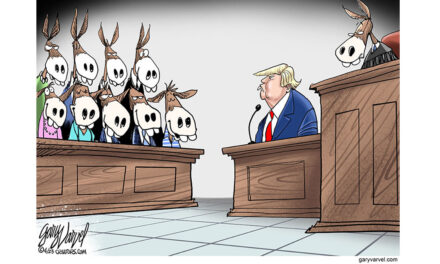
Gorsuch First Official Vote: Arkansas to Execute Death-Row Inmates
Newly appointed Supreme Court Justice Neil Gorsuch cast his first official vote this week, a decision that led to the death of a convicted murderer in Arkansas.
In the case McGehee v. Hutchinson, the state of Arkansas had been trying to execute eight convicted murderers before one of its lethal-injection drugs expires at the end of April. Restrictions imposed by the state’s pharmaceutical companies make it hard for Arkansas to acquire the drugs it needs for lethal injections.
The state had been planning to finish four of the executions this week. With a series of orders granted Thursday evening, SCOTUS gave Arkansas the power to do so.
Convicted murderer Ledell Lee was killed by lethal injection just minutes after the court’s final decision. He was executed at 11:56pm on Thursday night. His death warrant would have expired at midnight.
The court’s four liberal justices (including Anthony Kennedy) voted to block the executions. Gorsuch voted alongside his four fellow conservative justices, making the final vote 5-4. As is common in emergency appeals, Gorsuch and his fellow Republican justices have not written anything about their decision.
On the other side of the case we have the death-row inmates, who argue that the controversial sedative (midazolam) used in Arkansas’ lethal injection drugs puts them at risk for a painful death. Justice Sotomayor questioned the effectiveness of midazolam in 2015, suggesting that it may expose people “to what may well be the chemical equivalent of being burned at the stake.”
Dissenting Justice Stephen Breyer questions the state’s reasons for carrying out the executions. “Arkansas set out to execute eight people over the course of 11 days. Why these eight? Why now? The apparent reason has nothing to do with the heinousness of their crime or with the presence (or absence) of mitigating behavior,” he wrote.
Breyer points out that four of the inmates had been on death row for more than 20 years, and that the ‘use by’ date of the state’s controversial execution drug was the determining factor. “In my view, that factor, when considered as a determining factor separating those who live from those who die, is close to random.”
The landmark case comes just 11 days after Gorsuch joined the Supreme Court. For the first time in his life, Gorsuch made a decision that could have spared a man’s life. Many justices have said that such cases are the hardest part of their job, and it is rare that a new justice is forced to make such a decision.
The result of McGehee v. Hutchinson is significant in that it shows that the Supreme Court is clearly leaning conservative. Justice Kennedy is still the swing judge, but he can only make a liberal tie, not a liberal win.


























I would let Biden on the ballots in Ohio and Alabama. Keep him off the other 48 states for the…
Only by technicality does this thwart any chance of Trump being President. I do not care if he is guilty.…
We don’t care what that gutter slut thinks. Yes I called it right. It’s established that she has round heels…
Trump getting a fair trial in New York is not going to happen. The commiecrats have their thumbs on the…
Sir, I only respond in kind when you start the name calling. As is your way. As is your kind.…